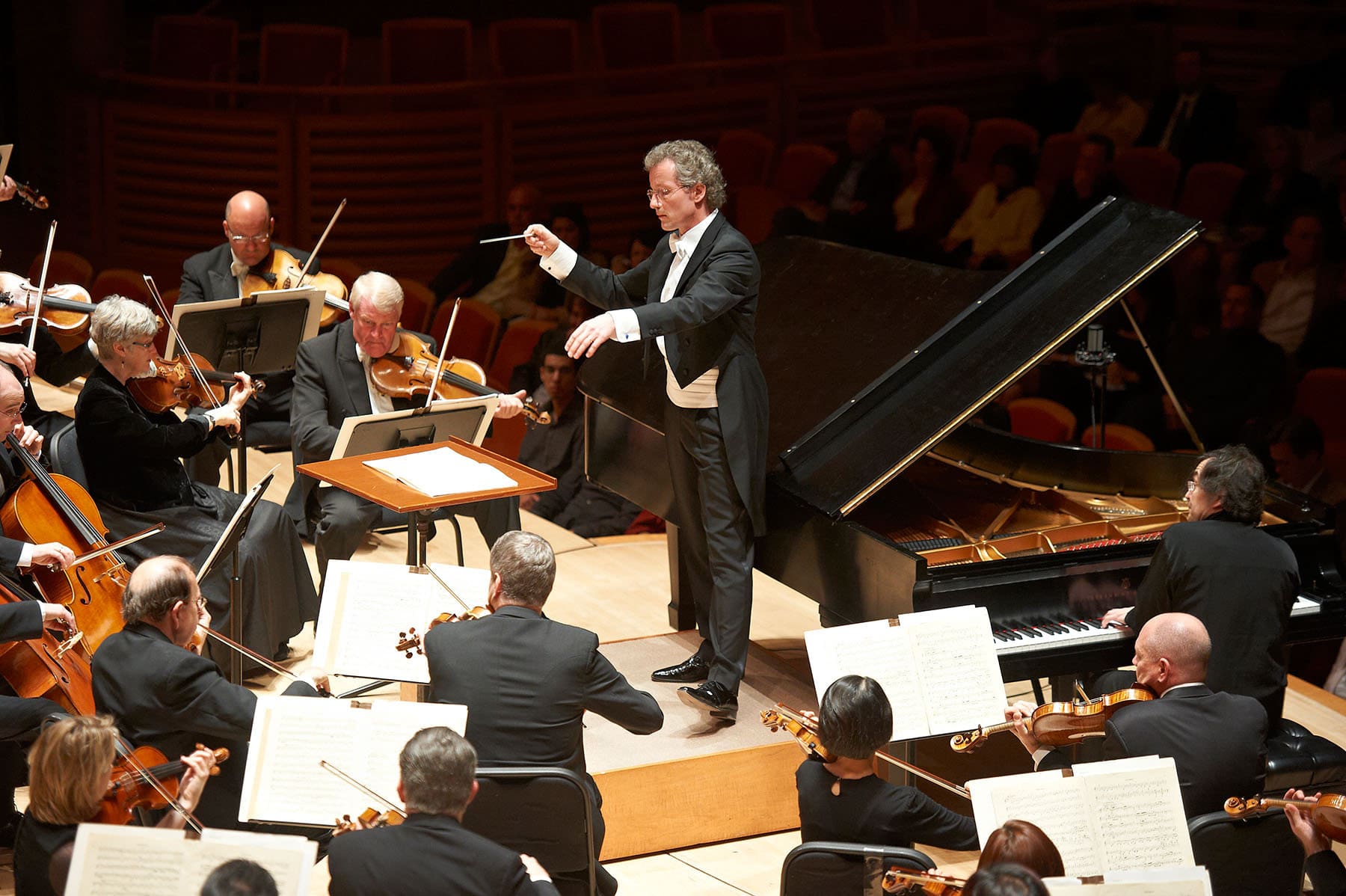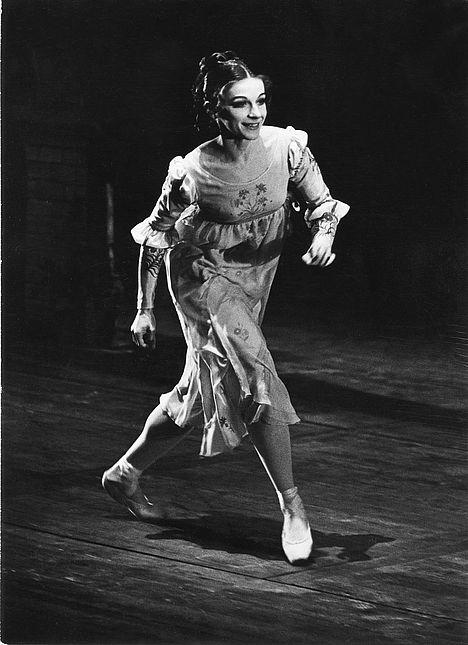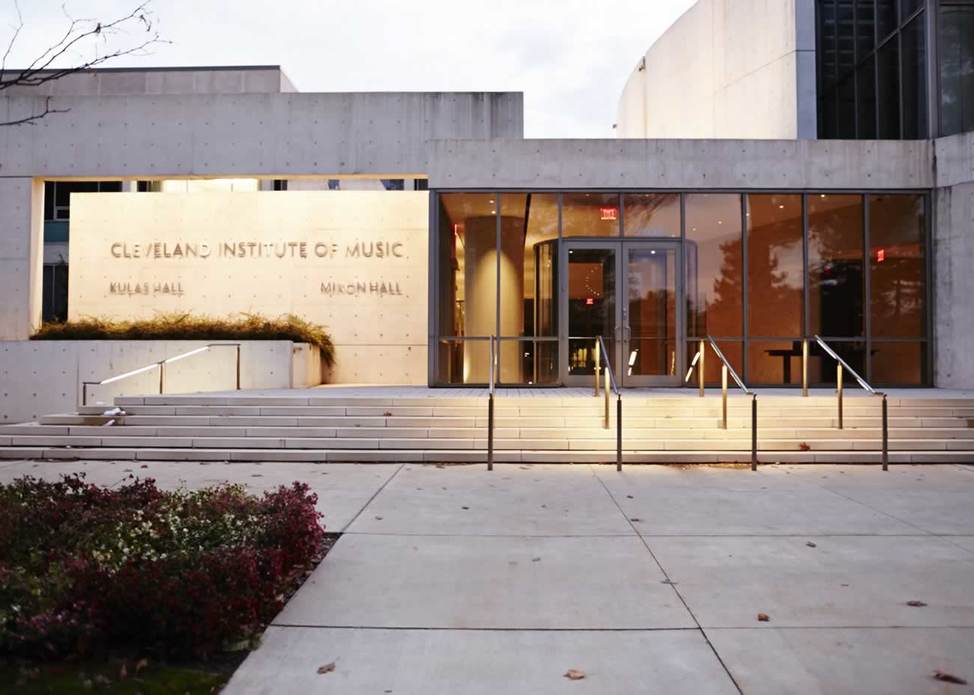Orchestra creates members-only tickets
mainIn an effort to combat falling subscription numbers – a problem affecting most US orchs – the Cleveland Orchestra ia trying out a Members Club option.
Official release:

Today, The Cleveland Orchestra announced details of a new ticket packaging and loyalty program, called the “Members Club.” This $35 per month membership program is designed to offer convenience and value for patrons who want to experience more Cleveland Orchestra concerts each season and includes access to year-round concerts at both Severance Hall and the Blossom Music Festival. Similar to monthly programs offered by a variety of entertainment companies, the Members Club was created to serve audience members who desire more flexibility than traditional subscription packages. The innovative program, which features a mobile app for convenience and mobile ticketing…
Members can reserve a single ticket for $10 to any concert, at any time, through a mobile app developed specifically for the program. For multiple tickets to a single concert, additional memberships are required. Members can reserve tickets for as many concerts as they would like and receive other benefits including free guest passes and drink tickets. After an initial 2-month commitment, Members can cancel at any time.
Good idea?






The quality of an idea depends on how well it addresses the the problem. It appears that the problem is budgetary. This is a symptom of the problem. The REAL problem, IMHO, is the low standards accepted today by the critics and the recording companies combined with a shift in the activity from the concert hall to the recording studio. In 1999, I think, Gramophone published a grand article about greatest recordings of the 20th century. One of the critics wrote that one must not believe that the classical music died with Klemperer. It may be right, but the classical music’s health is not good. Very good technicians, very poor souls. Many times I encountered the sentenced “Today artist can play anything”. I long for the times when artists played less, but expressed more, or at least something. I hope the recording companies will go bankrupt and artists will work harder to tell something in the concert hall. Then the orchestras will have no problems.
So… pay $35/month and then $10 per ticket, for as many concerts as you want each month?
Sounds good to me. What it will for the orchestra’s numbers, well that’s another question.
It does seem like a good idea. Why not give people additional options? A lot of people need the flexibility in their schedules. For some people this will end up being like gym memberships, where you pay every month but are usually too lazy to go. So the orchestra benefits. Of course, that could be balanced out by others who go to every possible concert.
At the very least it’s something relatively new and a serious attempt to tackle a declining subscription base. It’s rather odd now to think that subscription was the be-all-an-end-all of performing arts marketing half a century ago. To think now that the creation of what was in essence a self-perpetuating clique with subscriptions handed down from one generation to the next was a way of integrating a symphony orchestra into a community seems more than idiotic. It was merely a way of ensuring full houses. It kept audiences from growing by denying many who might have been interested the chance to attend. I recall hearing the guru of subscription, the Lyric Opera’s Danny Newman, address one Board by leaning across the table and saying in hushed tones before rising to a double fortissimo: “You will come to learn that the single ticket buyer is your E-N-E-M-Y!”
The Vancouver Symphony Orchestra learnt that obsession with 100% subscriptions is the enemy. The VSO even refused to advertise the availability and prices of single tickets. When the Board was challenged on this foolish suppression of information by two members, including the Chair (a distinguished economist and former Federal Minister of Finance), after I pointed it out to them — for so egregious was the omission, they hadn’t noticed — the rest of the Board just doubled-down on the subscription argument. Circa four years later, the VSO verged on bankruptcy, the CEO/President (an MBA, of course) resigned, and in her parting statement said with rather startling frankness that the reason for the financial crisis was the failure to sell single tickets. Put simply, to hear Arrau play the Brahms D minor, I’d buy a ticket in a heartbeat. Faced with a subscription that required me to listen to Mischa Dichter play the ‘Emperor’, I’d rather chew glass. This is exactly what musically unsophisticated Board members and the modern CEOs never could understand.
Back in the 80’s when visiting family around Christmas in Lausanne, Switzerland, I used to go occasionally to theatre performances at the Théatre de Vidy.
They had an excellent system for tickets: you’d buy a season membership, costing something like Sfr 80 (which of course never made sense for me as a visitor just for a few weeks), which entitled you to book/buy 1 ticket (costing something like Sfr 15) at as many performances as you want.
I thought it was a brilliant scheme: the theatre company received a significant amount of cash at the beginning of the season, and then season members were much more inclined to go more than once to a production they enjoyed, or try new things at a lesser cost than a full price ticket.
Sounds well worth a try, but I can see a couple of issues. It can only be available by a smartphone app. Contrary to popular misconception, not everyone uses those. There are no “tickets” — you use your phone. I think that is limiting.
Also, the one-per rule is reasonable enough, but in terms of seating, aside from specifying either balcony or floor, you are seated in “best available.” I suppose beggars can’t be choosers. but I detest being told I will get “best available” for the orchestra and prefer to negotiate particular seats. For dance I am adamant about it. No seat number, no sale. I am flexible enough to state a fairly wide range of seats among which any will do, but that flexibility usually results in the seller offering best available, and I will not make that mistake again. They operate within price points, not locations.
But, more importantly, if you only have one membership and want to go with someone else who has a membership too — a friend, or even a regular partner with whom you do not live — what guarantee have you that you will be seated together or even close? Presumably all this app-ing means no direct human contact — the ultimate desire of all marketing departments, to have all ticketing done electronically. But it puts a blight on date night if you are in G on the left and he is on T right and you can’t even get to the bar at the same time during the interval.
The smart thing for couples/companions would be to allow more than one membership on a single account. Just as now one login account can purchase multiple tickets to an event. And that’s how I interpreted the release. More than one membership required, not necessarily separate purchases required. But your complaint likely still applies for more casual friends, all members, who might want to attend together. A phone call might need to be in order… Given how orchestras are emphasising concerts as a *social* activity nowadays, I’m sure they’ve thought it out.
If I lived in or near Cleveland I’d buy a membership. I’m a millennial with a constantly changing work schedule and without a lot of disposable income. The flexibility and price are both very attractive to me. At a glance it looks like this should bring in a healthy chunk of revenue per patron for the orchestra. Time will tell if it works or not, but I seriously hope we see most orchestras try something like this out in the near future. While other commenters have pointed out some legit issues that will need to be worked out, traditional subscriptions are dying and we need something new. I think Cleveland is showing us all the way forward here.
Where do you get the idea the traditional subscriptions are dying???
Gothenburg Symphony Orchestra recently grew with 950 subscriptions and sold 97% of their tickets, Swedish Radio Symphony Orchestra with 1,200, Royal Dramatic Theatre in Stockholm with 1,450, Tonhalle Düsseldorf/ Düsseldorf Symphony Orchestra with 2,150. Smaller organizations like argovia phil (Switzerland) with 500 and sold out, Gävle Symphony Orchestra (Sweden) with 550, Bergen Philharmonic (Norway) with 500.
Subscriptions are live and well. The problem is the organizations that don’t know how to manage and market the subscriptions. It’s very sad people that have no knowledge about reality spread this kind of disinformation.
I started by buying an occasional one-off concert ticket and now go more regularly. And this is how most people I know started. If I had had to buy a season’s subscription I would never have started going to concerts. Single one-off tickets are the way to build your future audience.